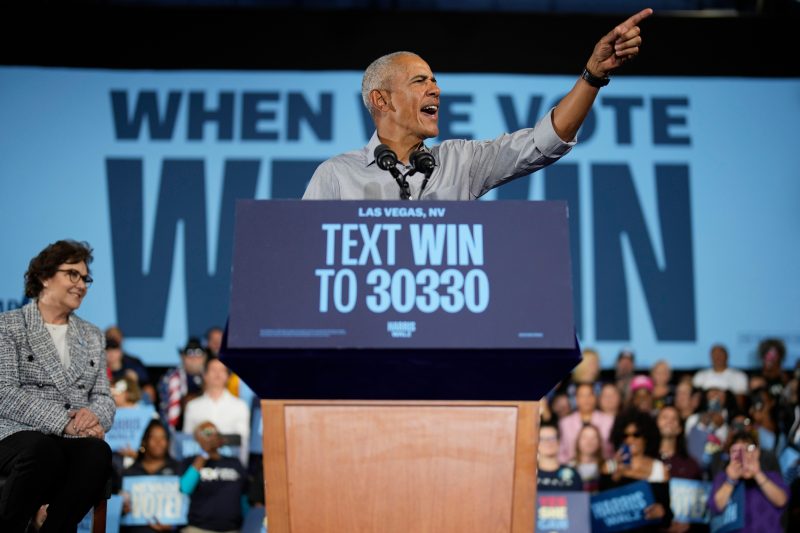Editor's Pick
23-10-2024 12:14
63 Views
Democratic Legends Champion Harris, While GOP Veterans Maintain Trump Gap

Title: Unfolding Dynamics Between Democratic Icons and GOP Elders Amid Election Fever
As the heat of the U.S. 2020 election began to escalate, a striking comparison emerged between the approaches adopted by the Democratic icons and their Republican counterparts: GOP elders. Intriguingly, such comparisons carry profound implications for understanding the current political landscape.
On one hand, notable figures from the Democratic Party enthusiastically campaigned for then-senator and vice-presidential candidate Kamala Harris. On the other, however, many Republican Party veterans seemed to keep a safe distance from the incumbent president, Donald Trump. This contrasting dynamic allowed intriguing inferences regarding party unity, the endorsement of candidates, and most critically, the perceived standing of the election contenders within their respective parties.
The Democratic side shone brightly with an array of influential figures rallying around Harris. The roster comprised Democratic icons inclusive of President Barack Obama, former Secretary of State Hillary Clinton, Speaker of the House Nancy Pelosi, and 2020 Democratic presidential nominee, Joe Biden. These iconic figures' resolute support for Harris resonated widely, epitomizing the unity that the Democratic Party sought to project. It was also indicative of Harris's acclaimed standing within her party, bolstered by her powerful oratory skills, resilient political stance, and the historic significance of her nomination.
Also, the Democrats embraced online platforms extensively, staging numerous virtual campaign rallies and events. This adaptation reflects the contemporary rebirth of political campaigning in the wake of COVID-19, suggesting the Democrats' adaptability and forward-thinking nature. Besides, these developments underscored the proficiency of the Democratic Party in engaging young, digital-native voters, a growing, influential demographic.
However, the Republican landscape painted a markedly different picture. Noteworthy GOP elders, including former Presidents George H.W. Bush and George W. Bush, refrained from openly endorsing Trump’s candidacy. Such non-endorsement reflected an undercurrent of dissatisfaction and apprehensiveness within the party's ranks toward Trump’s leadership style, divisive rhetoric, and alleged mishandling of the COVID-19 crisis.
Simultaneously, Trump's campaign events — often large, in-person rallies — distinctly diverged from the Democrats' predominantly virtual approach. Critics argue this not only displayed a disconcerting disregard for the safety of attendees amidst the pandemic but displayed a lack of adaptability and understanding of the evolving political landscape shaped by technological advancements and an ongoing global health crisis.
Ultimately, these contrasting dynamics provide valuable insights into the diverging strategies, unity, and adaptability of the two parties. Also, they shed light on the standing of their respective key figures — emblematic of the shifts in American politics. The unfolding scenario underscored the reality that the political arena is not merely a contest of individuals but an exposition of diverging narratives, ideals, and visions of party stalwarts who shape the perceptions of supporters and alternately, the outcome of the elections.
The 2020 election thus emerged as a fascinating study in contrasts, a reflection of the evolving landscape of American politics, and a testament to the ebb and flow of support amongst party lines. Indeed, the stances adopted by Democratic icons and GOP elders, their candidate endorsements or the lack thereof, and their campaigning dynamics serve as powerful indicators of the political climate now and beyond.
Reference: https://godzillanewz.com/as-democratic-icons-stump-for-harris-gop-elders-keep-distance-from-trump/

